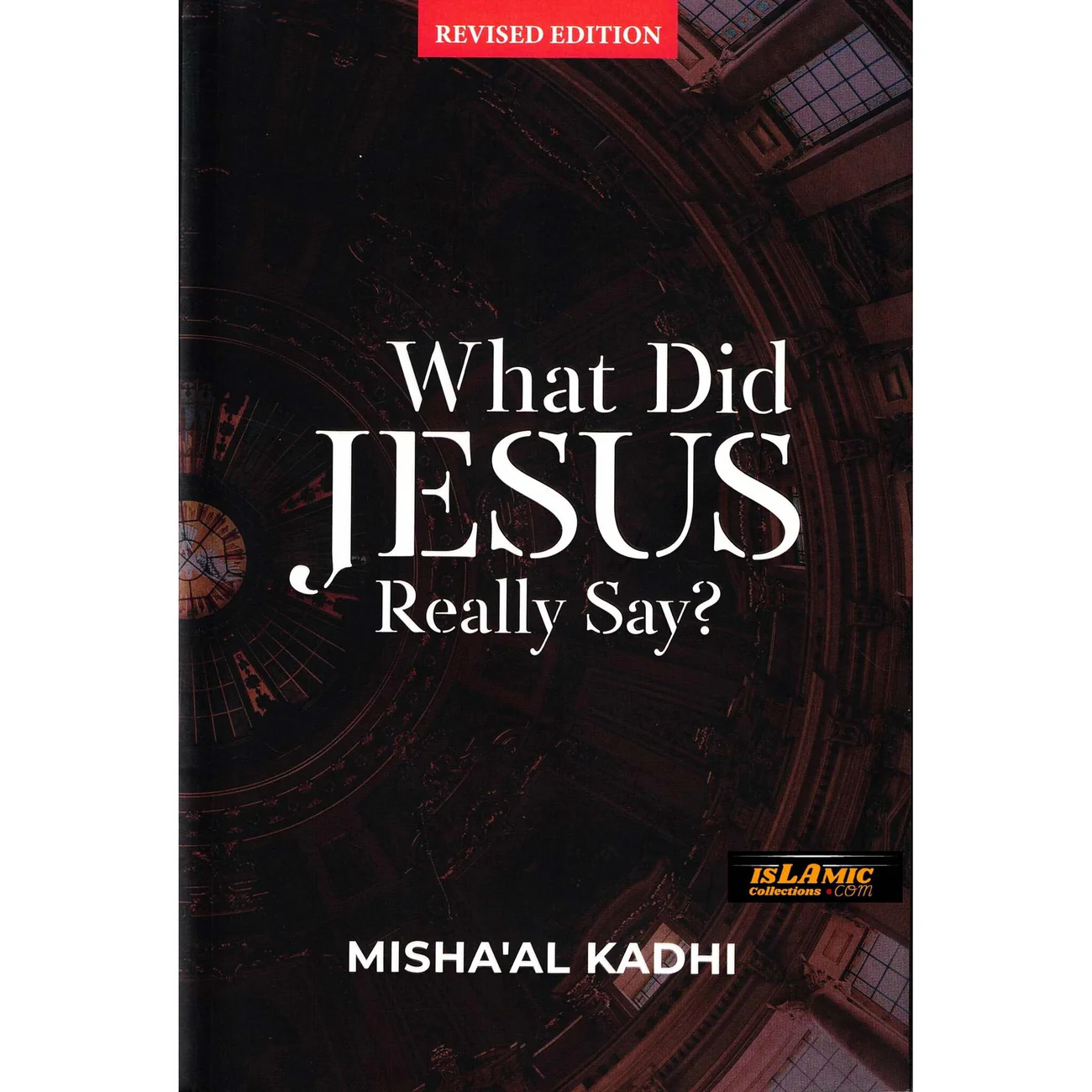What did Jesus actually say? This has been the echo of interfaith exchange, theological controversy, and religious search across centuries. In this volume, Misha’al ibn Abdullah Al-Kadhi explores this question with a solid foundation in both Christian and Islamic scriptures.
This book is not authored to provoke but to explain. It seeks to reveal the actual message of Jesus (peace be upon him) by cross-examining the scriptural record with the Quran and Hadith. The writer does not approach the topic with enmity but with genuine search for the truth.
A Thorough Examination of Scriptures
Al-Kadhi’s approach is both academic and sincere. He studies verses from the Bible and examines them in light of other biblical texts and Quranic teachings. This comparison brings clarity to many issues that often cause confusion among Muslims and Christians.
The book also explains how Christian teachings have developed over the years, particularly about the divinity of Jesus. The reader is led through the manner in which ideas such as the Trinity and Original Sin are absent in Jesus’ initial teachings but came later.
Jesus as a Prophet in Islam
The Quran equates Jesus with one of the greatest prophets of Allah. He was born of Virgin Mary and worked miracles by Allah’s permission. Islam does not declare him divine, nor do they believe that he died by crucifixion. Islam instead teaches that he was taken up by Allah and shall return.
Al-Kadhi expounds on the fact that this Islamic belief does not run counter to the message of Jesus as it was originally imparted. Rather, he demonstrates that it reinforces the essence of what Jesus actually taught—obeisance to the One God, righteousness, and accountability after death.
Refuting Misconceptions with Evidence
One of the strengths of this work is its in-depth analysis of misinterpreted Bible passages. Al-Kadhi dissects quotes regularly used as evidence of the divinity of Jesus and interprets them within their historical and linguistic meanings. He uncovers how selective interpretation has led to theological confusion.
The reader is made to understand that Jesus consistently referred to God as the final authority. He prayed to God, obeyed Him, and commanded others to obey Him as well. The author substantiates this with biblical quotes often ignored or misunderstood in contemporary theology.
Written for Muslims and Christians Alike
This book is not just for Muslims who want to know Jesus from a Muslim perspective, but also for Christians who want to engage their own scriptures afresh. The respectful approach asks for genuine dialogue, not confrontation.
Al-Kadhi invites us to open heart and mind. He invites us to remember that genuine seeking of truth must transcend inherited opinion or emotional attachment. Rather, one must look at what was actually uncovered, and to whom, and for what reason.
Breaking the Chains of Blind Imitation
One of the major themes of the book is the risk of taqlid blindly following inherited doctrine without self-reflection. Al-Kadhi illustrates how generations of Christians might have unwittingly accepted modified doctrines rather than the original teachings of Jesus.
This book invites readers to think hard, to challenge received narratives, and compare them with scripture and reason. It is not Christianity rejected, but a return to the original and authentic Christianity that Jesus himself preached and practiced.
The Quran’s View of Jesus
The Quran also speaks very highly of Jesus, or Isa ibn Maryam, but always positions him as a servant and messenger of God. It never once depicts him as divine. The author points out verses like:
“Indeed, the example of Jesus to Allah is like that of Adam. He created Him from dust; then He said to him, ‘Be,’ and he was.” (Quran 3:59). Al-Kadhi employs such passages to illustrate how the Quran reverses the picture of Jesus to its proper, original position honored, miraculous, and elect but not divine.
Jesus Never Had a Claim of Divinity
Al-Kadhi makes the strong argument that Jesus never had a claim of divinity. He quotes many passages in the Gospels in which Jesus separates himself from the Father and rejects equality with Him. For instance, when Jesus states: “My Father is greater than I.” (John 14:28)
This and other such statements, if scrutinized in earnest, do not allow any scope for the belief that Jesus asserted divinity. Rather, he advocated obedience to God and demonstrated submission all his life.
A Tool for Dawah and Interfaith Understanding
This book is an excellent resource for those involved in dawah. It presents arguments that can be shared with Christian friends and family respectfully. It offers logical explanations backed by scriptures they already believe in. Moreover, it serves as a bridge between the two faiths. Many Christians may find the Islamic view of Jesus closer to their own inner convictions once it is explained clearly. Al-Kadhi’s book offers that clarity.
An Invitation to Study and Reflect
What Did Jesus Really Say? is a religious text, but more than that. It is an invitation to seek the truth without prejudice. It encourages both Christians and Muslims to go back to scripture and read in good faith. If one really loves Jesus, then one should seek to obey what he actually taught—not what was said about him. This book forms a solid basis for anyone willing to embark on that journey of rediscovery in humility and honesty.
Read more: Noble Quran (Medium Size 8.7 x 6.0 x 1.8 inch) Cream Paper

